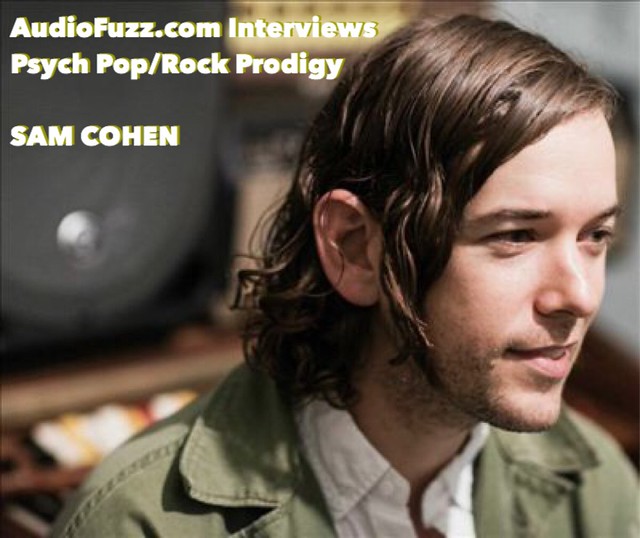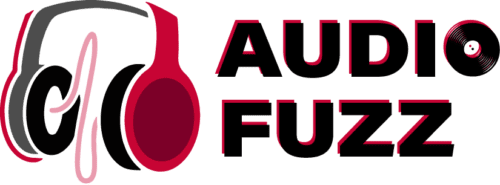Interview: Psychedelic Pop-Rock artist, Sam Cohen

This week we got some time to speak with rock vocalist, mulit-instrumentalist, producer, and director Sam Cohen. He released a masterful debut solo album, Cool It and we could not stop playing it (and you know we rarely say that). We learned in this interview that this is one of the cooler and more talented musicians that stands firmly on the ground with a clear direction as to where he’s going. Check out the interview below:
1. What artist(s) first turned you onto 60s-style melodies?
In my house growing up, my parents had a very limited record collection. Pretty much all we listened to was Bob Dylan’s Greatest Hits Vol 2, The Beatles Sgt. Pepper’s, and The Blues Brothers soundtrack. There’s a haphazard curation to that. It’s all from the 60’s, and covers the terrain of folk, soul, and psychedelic pop – and it’s arguably paramount in all categories. Dylan’s rawness to The Beatles visionary production. And while the Blues Brothers soundtrack is a late 70’s take on those tunes, they have the original singers, real deal players (Steve Cropper was my favorite character in the movie!), and it paved the way for getting into the original recordings and beyond. I’d say psych/folk/soul pretty much characterizes my musical interests to this day. I also remember loving “You’ve Lost That Loving Feeling” when it appeared in Dirty Dancing.
2. What is the biggest challenge about being a recording artist in today’s society?
Hmm, that’s a hard question to answer without sounding like a crybaby. It’s definitely harder today than it has been in decades to be solely a recording/performing artist – by that mean, all you do is play in your own band for a living. That directly correlates to where we are with album sales, free downloading and streaming services. When I first started feeling my way around the “biz”, which is to say releasing records in the early 2000’s, it felt like we’d just missed the boat. I knew guys who had built studios or bought houses with advances they got in the 90’s. There was a higher return, so labels were investing more. We had that dream of just doing our band for a living then. I never thought I’d be focused on producing records and playing on sessions as much or more often than working on my own music. I’m very happy with the way things have gone and can’t complain. I’ve been lucky enough to make a full time career in music work. But there are certain developmental things where a budget would be cool. For example, if selling records were more profitable, a label would be more willing to invest in tour support to get a new project off the ground. I’d love to be out doing more shows, but the cost of traveling with a band can be prohibitive if you’re not really well known. Today, it takes a pretty huge amount of notoriety to be making a good living, and it seems you still need to be creative with how you turn that into a livelihood.
3. On Cool It you played most of the instruments. Do you prefer the recording process to be solo or was it a challenge?
This record was special for me because I’ve always demo’d music alone and found the process to be fun and free. To hole up in a room surrounded by instruments is one of my great pleasures, and that autonomy leads to choices I wouldn’t otherwise make. I’ve always felt there was something cool about stuff I’ve recorded this way, but save for a couple of tracks on Yellowbirds ‘The Color’, this was the first time I had the confidence to put music out in this form.
There is a challenge because I’m limited as a drummer and keyboardist, and I’ve worked with such great ones. On the one hand, I know what I’m after so it gets directly to the idea, but sometimes it’s a reach on my own. Tracking live with people is certainly more efficient, and for a lot of things, the combination of personalities and sounds in a room is perfect. I’m sure I’ll make records both ways in the future. I’ve produced a lot of things lately that are more live than anything I’ve ever done, and it would be fun to explore it.
4. What role as a music intrigues you most; producer, recording artist, live performer, etc?
It excites me to jump back and forth. I need to get out of my own head frequently, so I think it’s really healthy for me to take time away from my own music. I get to learn from other people and it’s really cool to be involved in a variety of things so when I meet a musician or engineer I’m excited about, I can find a way to collaborate with them. Comparatively, just doing my own band and touring all the time seems too repetitive at this point.
I would love for playing live to become a bigger part of my life again, though. Working on that.
5. You have collaborated with the likes of Joseph Arthur, Cass McCombs, Norah Jones, etc. Who would you most like to collaborate with next?
Willie Nelson.
6. What album could you listen to on repeat and never get tired of?
Bold As Love is one of those.
7. If you could describe Cool It in three words what would they be?
Best I got.
For now, anyway.
Purchase Cool It
Visit Sam Cohen on FB
Sam Cohen Bio
2015 is the year that guitarist, songwriter, producer, and animator SAM COHEN sets out on his sweeping solo project. Formerly a core member of Apollo Sunshine and the man behind Yellowbirds, Cohen spent the last decade touring and making records, mostly in Brooklyn, treading the tenuous boundaries between the rough-hewn, the psychedelic, and the just-plain-timelessly-cool. Along the way he’s lent his guitar playing to the likes of Bob Weir, Norah Jones, Cee-Lo, and label-mate EDJ. Cohen also directs a beloved annual recreation of The Last Waltz that has featured Nels Cline, Cass McCombs, and former bandmate Twin Shadow, amongst dozens of others.
Cool It, Cohen’s solo debut, is an extension of the kaleidoscopic terrain evident on previous projects, but where those records rested blissfully in the sonic ether, Cool It reaches outward with more directness than ever, dropping a spotlight on Cohen’s arresting and unconventional songwriting. The melodic ebbs and flows might call Harry Nilsson to mind, while guitars and synths flicker under song forms, occasionally overtaking them in fits of molten stoner rock. Dynamic vocal deliveries turn sharp corners, ranging from gruff to tender, sometimes within a single stanza.
Cohen plays and recorded everything on the album himself (save a few guest appearances from his former Yellowbirds compatriots), largely in a week-long flurry in upstate New York. One creative gesture, captured with a lifetime’s worth of accumulated gear. Interestingly, all of the record’s lead synth hooks are performed on heavily processed guitars, a technique that saturates every mix with the feel of Cohen’s expansive and particular guitar virtuosity.
Pitchfork has called his work “willfully chaotic” and “highly refined” in the same review, while Paste has dubbed it “bedroom pop” and “a sonic tapestry.” Plaudits aside, he is an artist without consensus, evasive as ever, and finally all of the monikers, collusions, and alter-egos are stripped away. Introducing: SAM COHEN.


